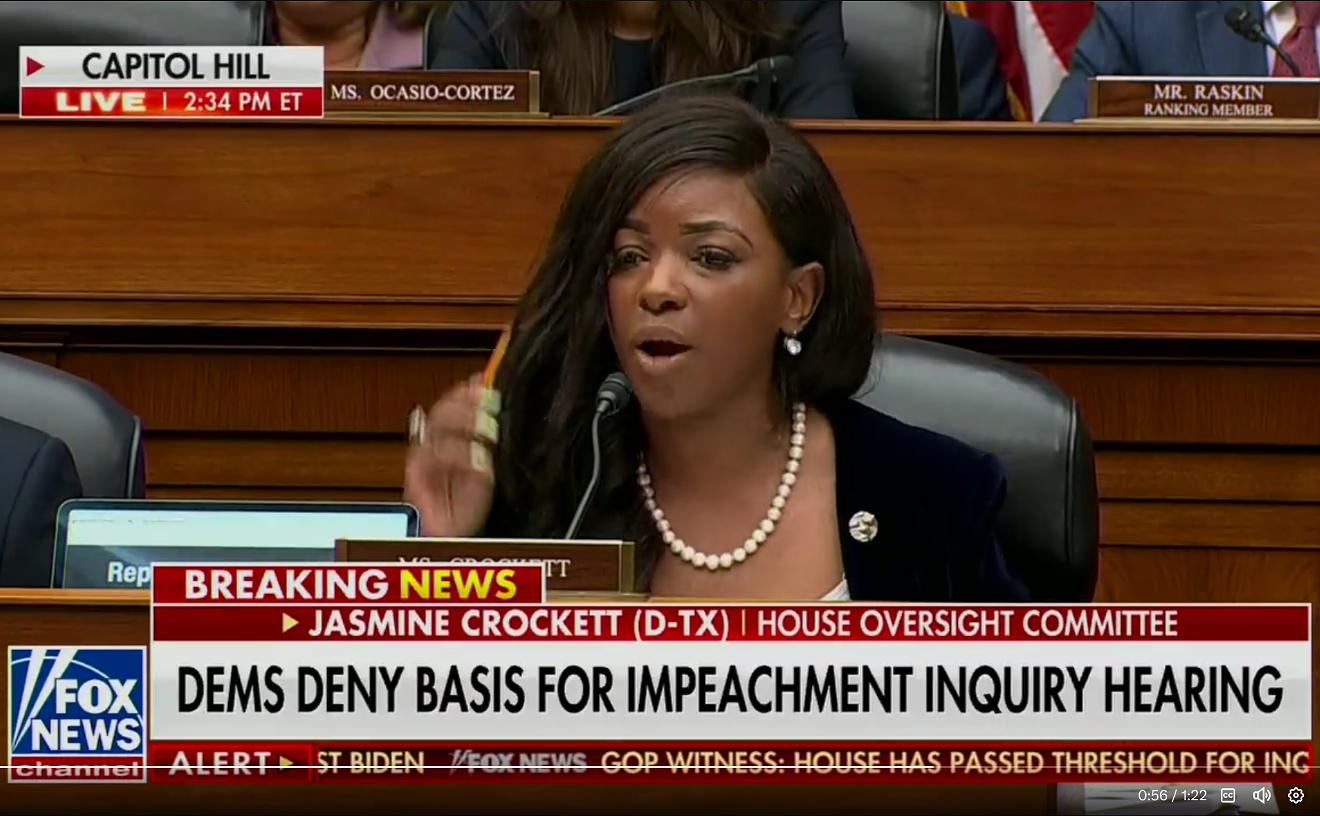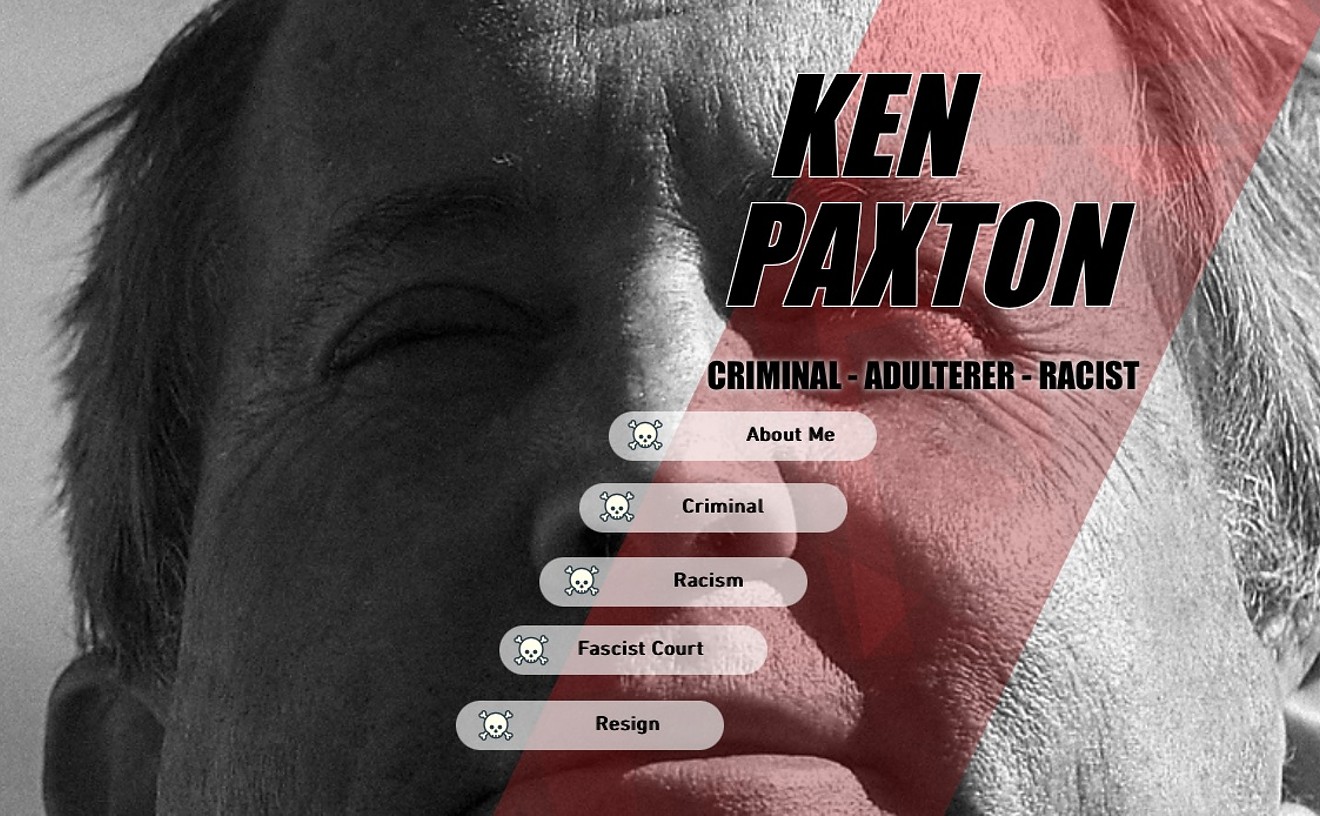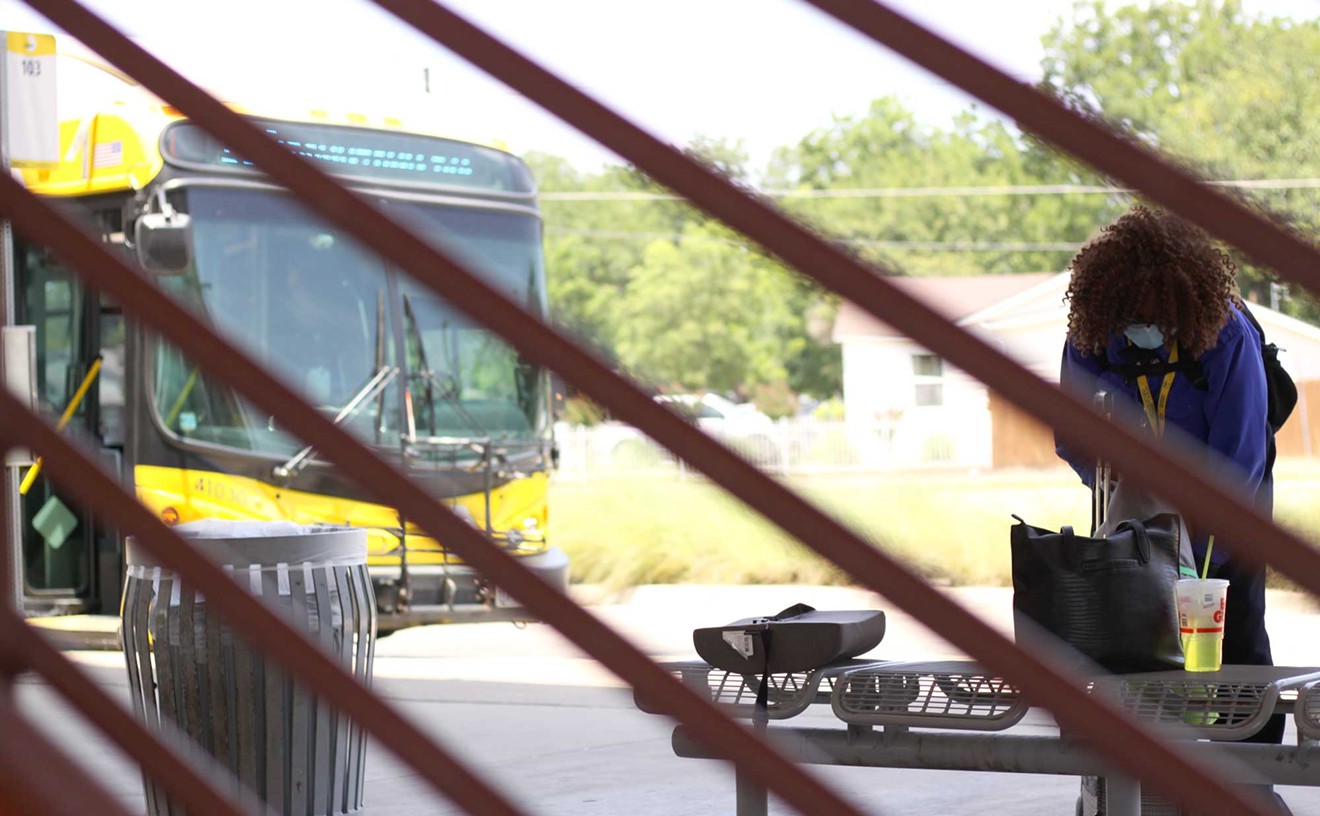A few weeks ago, one of the digital billboards on I-30 leading west into downtown flashed a message congratulating Sarah Colmark on a successful first year at WRR 101.1 FM, Dallas' classical music radtio station. Colmark was hired as general manager last January, nearly a full two years after the departure of her predecessor Greg Davis, and the Friends of WRR wanted to show their gratitude for how she's steered the city-owned station.
But beneath the WRR's uncannily placid surface, Colmark's tenure has been marked by constant change and a bloodletting that has drained the station of the vast majority of its former workforce.
Tempie Lindsey was the first to go. The veteran Dallas DJ -- she's been in the business since 1975, most notably at Q102 -- had been hired by Davis not long before he left the station in 2010, despite her lack of a classical music background.
"I lived and ate and breathed and studied that format the entire two-and-a-half years I was there and made significant headway," she says of her time at WRR. "It was a bloody miracle that I was able to pull that off. I feel like I can do anything now. That's a very discerning audience, and they'd let you know when you did something wrong."
She says she was doing a solid job when her boss, programming manager Kurt Rongey, "decided to put a paper trail on me." In March 2012, she says, Rongey presented her with a list of her mistakes, a half dozen or so pages long, and told her she was fired. WRR declined to comment on specific personnel matters, but Lindsey says the mistakes were insignificant, like minor pronunciation errors or an ad later than scheduled.
"If you have live radio, it's things that happen all the time," she says. "Nothing big. Nothing major."
In the months after Lindsey was canned, the firings came in quick succession: longtime sales manager Gary Isaacs; account executives Brent Sanderson and Leza Mesiah; and finally, Rongey himself.
Amy Bishop, the station's on-air star, left for a job in Houston. Lynn Addington, the station's top salesperson, also departed. All told, the entire seven-person sales staff and about half of the programming staff quit or were fired over the course of eight months.
Maria Munoz Blanco, director of cultural affairs for the city of Dallas, which runs the station, declined to comment on specific personnel moves. But "no one has been fired for a petty offense," she said.
"We hired a highly capable and entrepreneurial new General Manager 12 months ago and yes, there has been turnover in the station's staff," Munoz-Blanco wrote in an email to Unfair Park. "With new management, there is often a change in the make-up of the staff (similar turnovers have happened at the station with prior manager-level transitions)."
But several former employees say the exodus has gone beyond a mere attempt to inject new blood. They describe a workplace that became a cauldron of intimidation and paranoia. The source, several former employees say, was Munoz-Blanco, who filled the void left by Greg Davis and continues to exert considerable influence over the station.
"It became hostile," Addington says. "I have never felt such a atmosphere of absolute fear in my coworkers, and it made it hard for me to get past the terminal."
Lindsey puts it more bluntly: "[Munoz-Blanco] had all the tact of a small, angry bird."
Addington was particularly upset when WRR management abruptly raised ad rates on the nonprofits and arts organizations that were her bread-and-butter clients. Not only did this happen in the middle of their fiscal year, making it difficult or impossible for them to budget for, it damaged their relationship with the station, Addington says.
"The station used to take pride in supporting the arts, nonprofits," she says. "We were partners to nonprofits. I felt ... like that vision was being erased. Eradicated. Retracted. Whatever word fits."
Munoz-Blanco contends this was "is consistent with the City of Dallas commitment to the arts," noting that nonprofits still get two spots for the price of one.
"Reps were instructed to stop heavily discounting rates or throwing in so many freebies as the station's bottom line was being impacted," she writes. "Business with agencies that only buy at deeply discounted rates (i.e., $40 a spot when the rate is $200 a spot) was also stopped."
On the programming side, Munoz-Blano made no friends when she announced at a meeting of programming staff that announcers -- that's WRR's term for DJ -- would no longer be allowed to be paid for promotional appearances. She says it was to comply with the city's code of ethics, which bars city employees from receiving such payments.
But such appearance are common practice in radio, and the on-air staff weren't happy with the decision or the abruptness with which it was delivered.
"She jerked that out from under us," Lindsey says. "You could have heard a pin drop at that table."
Then there was the feeling among employees that station management was watching their every move. According to three former employees, Isaacs was once formally reprimanded for inadvertently making a long-distance call to his wife, having not realized that their new home, a few blocks away from their old one, was no longer a local call.
All of this has had one predictable impact, the employees say: sales revenue is way down. In the first quarter of fiscal year 2013, which started in October, local sales were down 24.6 percent. (Sales for fiscal year 2012 were down 5.1 percent from 2011). Munoz-Blanco blames this on the new sales staff, who need three to four months to build up accounts, and the disruption caused by the fall elections and fiscal cliff negotiations.
"We fully expect that with an improved on-air product and a new fully staffed sales force, station revenues will grow this fiscal year and the next," she says. "The station deeply values its advertisers and cultivates those relationships with great care."
As for the music, Munoz-Blanco says the station is seeking to grow its audience by "continuing to explore the greatest music of the last 500 years but also experiment[ing] with new programming features like film and gaming scores."
Addington thinks the station is heading in the opposite direction.
"In their effort to broaden their audience," she says, "they were turning their back on their existing advertising base, and I think that was a strategic mistake."










